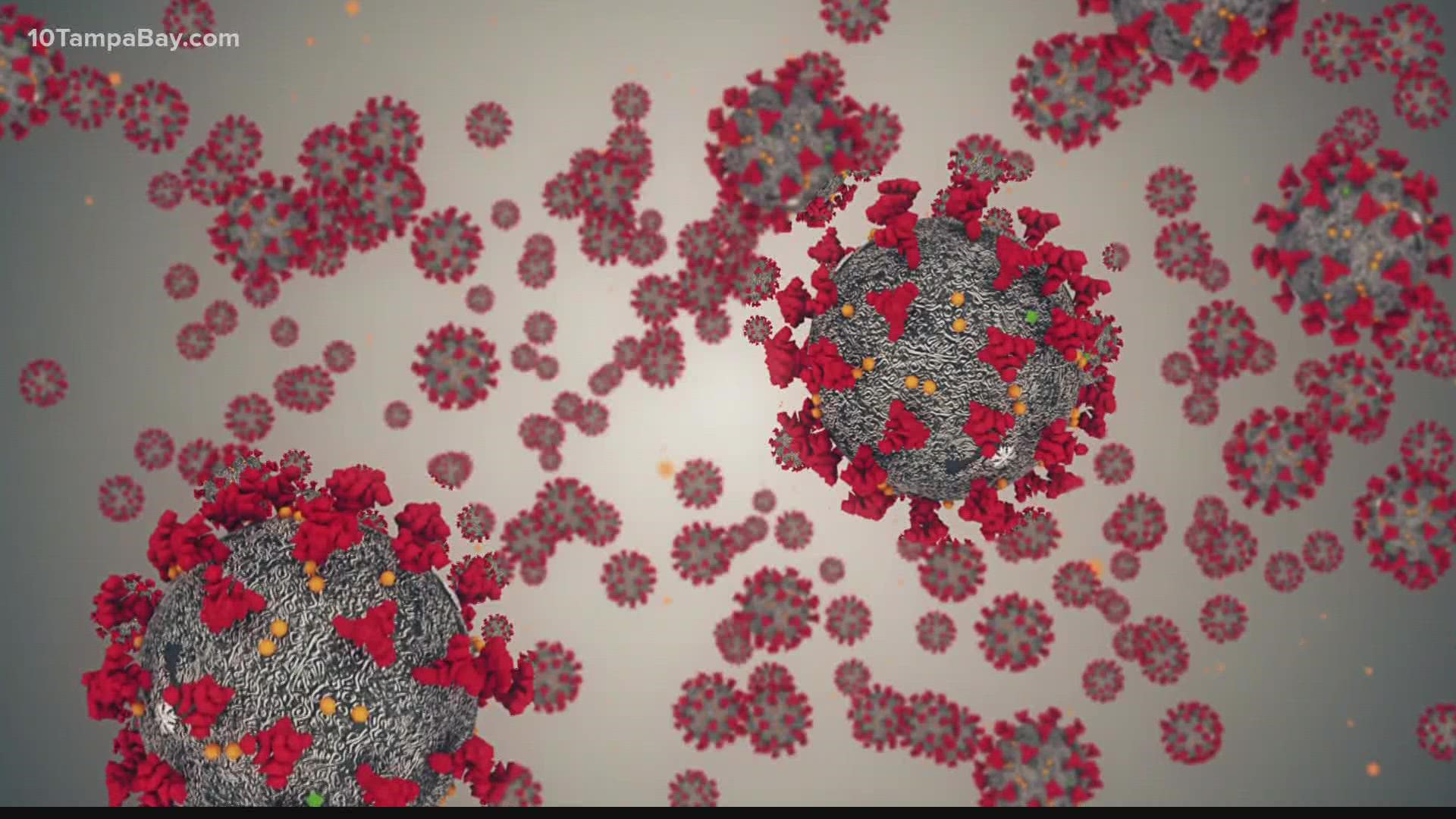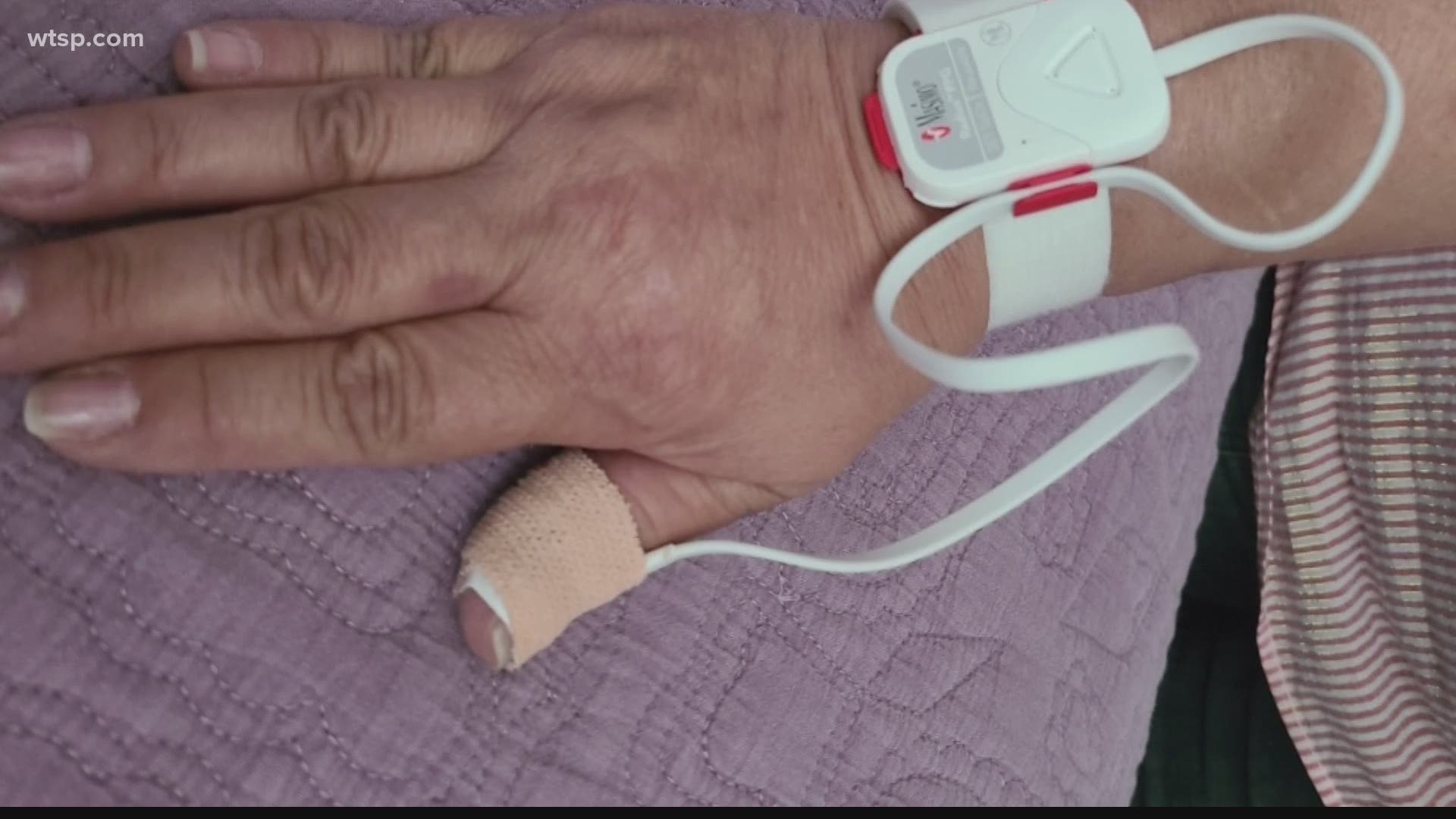TAMPA, Fla. — We've come a long way in 18 months. Vaccines, treatments, and now a pill.
"You’re hitting it with a one-two punch. This is really really bad news for the virus," said Dr. Thomas Unnasch, a Distinguished University Professor at the College of Public Health at the University of South Florida.
Unlike the other COVID-19 treatments currently being used in the United States, this experimental pill doesn't require an IV or injection, therefore you're using fewer medical resources.
"This is going to be going to your pharmacy, get your prescription filled, and taking four pills," said Unnasch.
Friday morning, pharmaceutical company Merck announced its experimental COVID-19 pill reduced hospitalizations and deaths by half in people recently infected with the coronavirus and that it would soon ask health officials in the U.S. and around the world to authorize its use.
"This thing stops the virus from effectively replicating," said Dr. Unnasch.
Patricia Diaz knows what's it's like to have COVID-19 ravage her body. She had a severe case in April of 2020. She was hospitalized and spent weeks at home on oxygen. More than a year later, Diaz still deals with brain fog and fatigue.
"I’m very grateful because I feel like I’m one of the lucky ones. I’m grateful I’m still here because I’ve seen so many people pass away from COVID," she said.
There weren't many treatment options for Diaz when the pandemic first hit. She says a pill could have changed everything and even kept her out of the hospital where she saw overworked doctors and nurses day after day.
"So many people in the hospital, it’s just one bed after another as they’re rolling you in. You just see so many people," she said.
Dr. Unnasch says alleviating the strain on our hospital system is a key to ending this pandemic.
"The hospitals are designed to function under normal conditions and a lot of people go to hospitals for a lot of other reasons than COVID-19," he said.
According to Unnasch, the pill offers another defense against the virus that could work in conjunction with a vaccine or monoclonal antibody infusion.
Vaccines and monoclonal antibodies keep the virus from ever reaching your cells. The pill doesn't keep the virus from getting into your cells but it does stop it from replicating, offering two different ways to block the virus.
Several other companies, including Pfizer and Roche, are studying similar drugs that could report results in the coming weeks and months.


